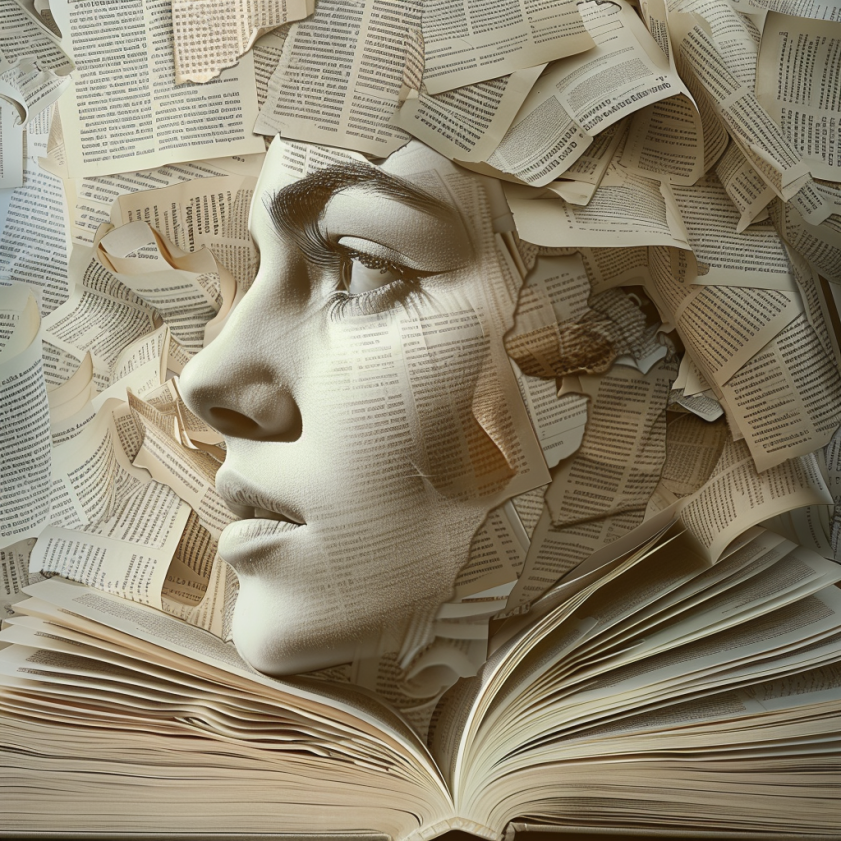As if answering my mother’s question, the book explains the value and role of literature, explaining that literature does not oppress, but provides human freedom and pleasure, and makes us aware of social injustice.
Throughout my life, my mother asked me what was the point of writing literature that I couldn’t use. Only now do I give you a belated answer. Literature is not a shortcut to power, and in that sense it is not useless, but paradoxically, it is useless in its inability to be useless. We don’t feed the hungry, and we don’t make a lot of money, but that’s why literature doesn’t oppress people. What is useful to man oppresses him, by and large, because it is useful. Think of the frustration of being deprived of something useful. But literature does not oppress man because it is not useful.
Because literature does not oppress, its primal stage of feeling is accompanied by pleasure. I can still hear my mother’s voice from when I was a child. On winter nights, she would put out sweet potatoes, persimmons, or even dongchimi for me to eat, and in a hushed voice, she would tell me the story of Abel and Cain, or the story of one of her relatives who was punished for stealing, until I fell asleep. I vividly remember the terror and pain I felt then. But how much I enjoyed the pleasure of my mother’s plaintive voice beneath the pain and suffering, the imagination it evoked, the wonder and delight it gave me! Within that pleasure, we feel the terror of what we should not do, and the duty of what we must do; it is duty, but not oppression. It is a primal reflection and realization that pleasure awakens.
My mother’s stories were not just old tales; they were lessons in morality and ethics, and a time to let my imagination run wild. Those moments were more than just enjoyment; they were precious times to realize the truths of life. Those memories accumulated to form my literary sensibility.
This pleasure from literature goes beyond mere enjoyment. Literature allows readers to see the world in a new light and discover truths and beauty that are often missed in everyday life. In the process, readers are confronted with their own deepest feelings and empathize with others. Through this emotional connection, literature shortens the distance between people and enriches human relationships.

Literature allows us to see many of the emotions and events we encounter in our daily lives in a new light. For example, literature captures the nuances of emotions and the complexity of social issues that we tend to overlook in everyday conversations. This allows readers to gain new insights and experience a deeper understanding that they may not have realized they had.
Literature that does not oppress shows that everything that oppresses is negative for human beings. Because the arguments in literature oppress people, literature does not provide a clear path. It is through literature that humans identify the oppressor and the oppressed and recognize their negative power. A poem of melancholy can bring awareness to the reader of what oppresses people and makes them unhappy. In a novel, when the protagonist’s pursuit of true values is ultimately defeated, we suffer, and by suffering with him, we are able to see the absurdity of the world that oppresses us, and realize that in the end, human beings must live freely and happily. Therefore, we painfully contemplate happiness.
Literature is not just entertainment. Literature reflects the society we live in and denounces the absurdities and inequalities that occur within it. Literature is a mirror of society, and in its reflection we see ourselves and dream of a better future.
Literature cannot save a hungry beggar, but it can make it scandalous that there is a hungry beggar, and in the end, it can lead us to happiness. It is painful to think of happiness in times of suffering and hardship, but as the French philosopher Voltaire said, we are born to breathe happily. How can we give up breathing well? I cannot give up literature.
Literature also has the power to record history and predict the future. From ancient epics to modern novels, literature has left its mark on humanity and played an important role in understanding our present. Literature is a mirror of the times, and in it we can see ourselves and envision our future. The power of literature goes beyond the individual story to tell the story of humanity as a whole.
It gives us meaning in life, makes us realize how the world works, and allows us to reflect deeply on the nature of humanity. Through literature, we gain a deeper understanding of the joys and sorrows of human beings, and through it, we strive to become better people. For this reason, I cannot give up literature, and I will continue to explore myself and the world through literature.
Literature is more than just a record of the past, it teaches us lessons for the present and provides guidance for the future. Literature allows us to experience different aspects of life, which can enrich our lives. Literature gives us freedom of thought, allows us to use our imagination, and ultimately allows us to dream of a better world.
Therefore, literature is more than just writing. It gives us meaning in life, makes us realize how the world works, and allows us to reflect deeply on the nature of humanity. For this reason, I cannot give up literature, and I will continue to explore myself and the world through literature.
